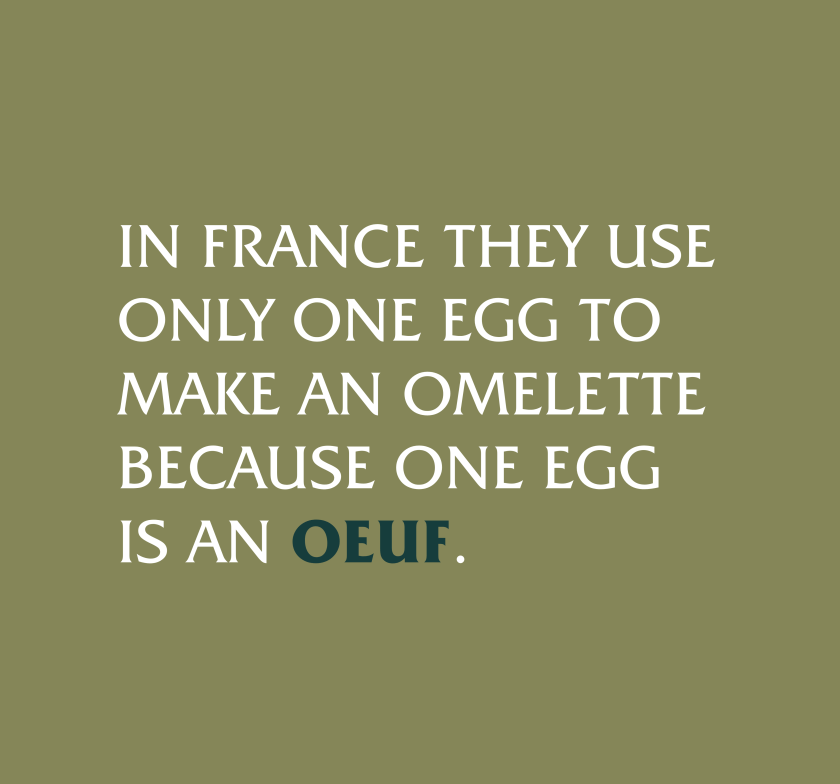You know that well-worn phrase: “You can be anything you want. The world is your oyster?” Well…… Actually, no, before I continue, what does that even mean – ‘The world is your oyster?’
‘Hey-ho. Here he goes again, five lines in and he’s off on another tangent.’ I know. I do this all the time. I start a blog and write something like ‘The world is your oyster,’ and then I get to thinking and wondering what it means and then I’m on a riff, off on that tangent (which I subsequently try to retreat from) because my curiosity gets the better of me. And then I think, well why not share this with my 2.4 readers and we can all learn something in the process. Wouldn’t it be nice, my loyal following if, at the end of each of my meandering blogs, we can all turn round and say, “Well, I didn’t now that?”
It’s a well-worn formula. This is what I do when my curiosity is aroused: I go to Mr Google and Mr Wikipedia and cross-reference several sources to see if there is a consensus. Then, once I am satisfied there is credence, I move on and try and store it in my memory in the vain hope that someone at a social gathering (you know – we used to have them pre Covid!) might ask where a commonly used phrase originates from and I leap in and impart knowledge as if I am knowledgeable. (#thisneverhappens!).
So, this is what nosweatshakespeare.com say about ‘The world is your oyster.’
‘The saying has mysteriously evolved from its original appearance in Shakespeare’s comedy, The Merry Wives of Windsor. It’s slightly misquoted, as is so often the case with Shakespeare references that become English idioms. The actual quote is ‘The world’s mine oyster.’
Shakespeare re-introduces one of his most popular characters, Sir John Falstaff, as a con man, planning to con two Windsor women out of their money. He has his usual disreputables around him, among them a man called Pistol who utters the immortal line ‘the world’s mine oyster’ during a conversation about money. The conversation goes:
Falstaff: I will not lend thee a penny.
Pistol: Why then the world’s mine oyster, Which I with sword will open.
Falstaff: Not a penny.
And there you have it. As Margaret Thatcher might have said in her heyday, “We are informed!”
OK, retreat back to subject/s. I wish I was a Ployglot and I wish I could play Boogie Woogie or/and Scott Joplin on the piano. I’ll make this a two-part blog, I think. Let’s start with Polyglot. I am not actually sure where I am going with either of these subjects. I sort of have a purpose but let’s see what happens. As with lots of journeys, if you don’t have a map but know roughly the direction, you’ll still end up at the destination. You just might get lost a couple of times!
Do you know what a Polyglot is? ‘Well, that’s not a great start is it?! Of course we do, you patronising git – it’s someone who can speak more than three languages. They are multi-lingual.’ Er, yes exactly that, sorry.
I wish I was a Polyglot. When I was at school in the late 50s, and through the 60s, French was a compulsory subject. We started in the last year of junior school, which is now called year 6 in the UK. I was hopeless! “Je m’appelle Cliff. Je suis fatigue,” was about the sum total of my Francoise when I left school at 16. I mean, I wanted to be good at French, I really did. I thought it would be cool, romantic, life enhancing. But I just struggled the whole time.
It wasn’t the teachers. It wasn’t like they got the PE teacher and, on the basis of him or her running a two-week school skiing trip to the French Alps, said, “Right, you’re now teaching French.” No, in my secondary school we had a real French person as our teacher. It’s so much easier if the teacher is a native speaker. Easier for those who can grasp it, that is.
Our teacher was called Madame Malhomme de la Roche. I’ve never forgotten her. She was lovely but she had all these kids who were frog marched (is that a Freudian slip!?) reluctantly into the classroom and most of them weren’t interested. I really was but I just couldn’t get it. We had one kid in the class who had a French mum or dad and, of course, he was fluent and bilingual and we were very envious. I wanted to be that kid.
Part of the problem was our education system back then and I don’t think much has changed. I think UK kids should be taught a second language from when they start speaking their mother tongue. Assuming English to be their first language (even if their ethnic backgrounds suggest different, through mimicry, social interaction with peer groups and watching TV and movies, English pretty much becomes a first language) then, either French, Spanish or Chinese should be compulsory from an early age.
The argument has always been that it would be too much for really young minds to take in. Well, I’m not an educationist but that has to be complete tosh. Do you know any bilingual kids who are handicapped in their educational development? Look at how many youngsters started picking up Spanish through Dora the Explorer. Did it slow them down developmentally? I don’t think so.
I have a theory. Take the South East of England, the coastal towns of Sandwich, Deal, Dover, Folkestone and Hastings. Take a similar swathe in France from before Calais to and beyond Boulogne. For arguments sake (‘cos I don’t know the true figure) let’s say the population in those English towns mirrors those in the French ones. Let’s pluck a figure of, say, 200,000. Cap Gris Nez is about midway between Calais and Boulogne. Dover to Cap Gris Nez is the shortest distance between England and France. We call that stretch of water The English Channel; the French call it La Manche. Just 21.5 miles, or 34.5 kilometres of water separate our two countries. But it’s my bet that far more French people in those areas speak English than English people on our coast speak French.

That’s what I think. Prove me wrong 2.4!! Look at the rest of mainland Europe or Scandinavia or Iceland. Everyone speaks English and, in the most part, fluently. How do we fare in comparison? Pretty poorly I’d say. We make an arrogant assumption that, wherever we are in the world, everyone can or should speak English. See Brits abroad and squirm.
Take France, for example. Firstly, your typical Brit’ on holiday in France will search for an English type restaurant – “Cos we don’t want that foreign muck!” Then they order in English. If the restaurateur doesn’t, or pretends not to, understand English, the typical Brit’ response is to say the same thing but slower and much louder! Embarrassing and tres awks!!
Do you know why we aren’t very good at languages? With apologies to anyone out there who majored in English literature at university or learnt Latin at school, which, on both counts, excuses them, the reason is we don’t understand our own language, that’s why. Plain and simple. I mean grammatically. We don’t know grammar.
Jumping off the fence, I would say that, for my height and weight, I am averagely articulate (despite one teacher telling me that I was a gross ignoramus, which, he told me, was 144 times worse than a single ignoramus!). Yet, if you asked me to grammatically break down the last two paragraphs of this blog. I would be stuffed. This is a man who, if a recipe said separate two eggs, would put one in a cupboard and one in the fridge. How, then, can I be expected to conjugate a verb or search for a nominal relative clause. And, as for a past or present participle, just stop it! You might say, well you just typed those three grammatical terms with confidence. Yeah, well anyone can Google ‘grammatical terms’, search through a list and blag it!!
My two most embarrassing moments in the French class in Quinton-Kynaston school in Swiss Cottage, London were, a) once accidentally calling Madame Malhomme de la Roche mummy in the class in front of 30 boys!!! Aaargh, I cringe at the memory. But, come on; tell me you didn’t do that too. Oh, you didn’t. Just me then!!
And, b) we had a language lab where everyone was in a booth with a Perspex screen so Madame could see you. We all had headphones on and we had to listen to and repeat French sentences or we were asked questions and we had to answer in French. But Numb nuts here didn’t realise that Madame could not only listen to, but also play back an individual’s answers to the rest of the class through their headphones. So, in an early language lab session, Clifford thought that if Madame saw his lips moving in a concentrating, confident manner, she would be impressed at his interest and enthusiasm and say, “Well done, Clifford.”
But Clifford was not repeating perfectly pronounced French. Nope. Clifford was singing. Clifford was singing “We all live in a yellow submarine, oh yes we do, oh yes we do, heehaw heehaw. We all live in a……” (remember, it was the sixties). This was not the response Madame was expecting or hoping for!! Got detention for that.
Fast forward just three or four years and I found myself to be a fully-fledged soldier of Her Majesty’s armed forces posted to Münster in Germany. Actually, I was a gangly, spotty youth aged seventeen and a half whose spindly arms couldn’t manage a single press up but that’s by the by. I had a perfect opportunity to learn German. I was young; I was embedded in the country for two years. I could have gone to night school; I could have watched TV or German movies. After two years I would have been practically fluent. But I didn’t and I wasn’t. My very bad. Badder than bad, bad.
In 1976 I was again posted to Germany, to Berlin. Berlin is an amazing city. It’s an incredible place to live. Of course the Wall was up then, which, in a strange way, made it even more mysterious and exciting (not for the oppressed general East German population though). Did I learn German in Berlin? Did I seize a golden opportunity? No, of course not. Berlin was split into four sectors, French, American, British and Russian. Trips to the East were heavily controlled but, in the West, English was the common language. Everyone spoke English and I was just plain lazy.
But, wait, do you know what? I did learn German. I learnt German at the very end of my Berlin tour. I had to. My next posting was to be in the North of Germany (See my previous blog: Back In The Day). It was a NATO headquarters but, although the NATO language was, and still is, English, there were only five British soldiers there. The majority were German and Danish soldiers (The Danes all spoke English and German to a very high standard). A condition of the posting was that I had to do the basic Army German course, which lasted six weeks. I then had to do the colloquial course, which was a further two weeks.
I was amazing. Sorry, I mean I was average. Alright, slightly below average but I just about understood the dative and accusative and scraped through the eight weeks. Was I colloquial? Oh yes. I was so colloquial at the end of the course that I could barely manage to ask a farmer if I could park my tank (I didn’t have a tank!) in his farmyard and did he have any eggs for sale!
I know what you are thinking. ‘And, of course, he never spoke a word of German for the next two years. ‘ Ah, but I did, you see. I actually did because I joined a German running club and, once the novelty of me being there wore off, they only spoke German. Of course my grammar was still rubbish but, by repetition, I learnt a lot of German, a lot of link phrases, which are crucial to learning a language. It opened up a lot more avenues for me and, to this day, I can hold a conversation in German as long as it is langsamme and einfach – slow and easy.

As with a lot of life’s challenges, it’s the fear which inhibits us – the fear of failure, of non-comprehension. But, check this out: A lot of European languages have very similar words. Take French, for example. Did you know that there are many, many words that are similar to English ones, as there are in German and Spanish? The difference is they are pronounced differently. And, in French, that is a perfect example. Vive la difference – long live the different.
Certain(ly), Probable(ly), Exact(ly), Final(ly), General(ly) are just a few examples of words that are the same in English and French. But, where we put ly on the end, in French you put ement: Certainement, Probalement, Exactement, Finalement, Generalement. See, I’m practically fluent!
If I had my time again, and – go with me on this – I were a young Premiership footballer with prodigious talent and worth millions, I would engage an English teacher to teach me grammar and then devote two years each to an English (to hone my football talent), French, German, Portuguese, Italian and Spanish club. By then I would be about twenty-eight, at my prime and definitely a Polyglot with access to the language and culture of any country in the world. OK, not China. But what if I ended my career on a bank-busting pay packet at a Chinese club? That would do it. ‘What about Russian?’ What? ‘What about Russian? Or Japanese? Or any of the other nearly 6,500 languages in the world?’ Well, now you’re just being pedantic. The point is, with seven languages, you can pretty much be understood anywhere.
The trouble is I am neither young nor a prodigiously gifted footballer. But I still have an interest in learning a language. My route of choice would be to take a Michel Thomas course. Of course, embedding in a country would be the better option but I blew that already so Michel it would have to be.
He has long passed now but check him out. Fascinating life story. Originally Polish, he was a resistance fighter during WW2 and he was a true Polyglot. After the war he settled in America where he had a language school. He also taught a lot of Hollywood stars of the day. His courses and methods are amazing. The first thing he says is that there is no homework. Then he says you don’t have to learn grammar or memorise anything. What, what, what! Those are magic words. How does that work? Check Michel out, it’ll be worth it if you want to learn a language.
I think I’m done here. What’s the point of ‘I Wish, Part 1?’ Well, I’m not sure but I think I’ll have a better idea at the end of ‘I Wish, Part 2 – I wish I could play Boogie Woogie on the piano.’ So, I’ll post this and see where Part 2 takes me. I’ll set myself a target to post Part 2 by Thursday. No pressure1


Just great! A wonderful mix of humour and definitely on point – we are a pretty lazy nation. Love reading your blogs Cliff. I’m off to check out Dora
Thank you Cliff, a great read which may have been the nudge I’ve been waiting for, to brush up on my languages xx
Brought back my own memories of beginning to learn French. I was sent home with a cassette tape to practice endlessly repeating the lesson of the day:
“C’est Marie?”
“Oui, c’est Marie.”
“Qui est-ce?”
“C’est Marie!”
All good except that I somehow convinced myself that I was supposed to record my responses onto the cassette tape and hand it back in… When she finally stopped laughing my teacher told me that she’d never had that happen before in twenty years of teaching.
🙁
Haha Drew, I share your pain!!
Totally agree we should just live in another language from the year dot. Kids who speak one language at home and another at school manage it (yes there are some disadvantages if the parents don’t have the local language at all, but that’s a different story) – I’m imagining schools in Latin now for those whose boat that floats (though in fairness a grasp of Latin stands tippy in good stead for learning a slew of other languages…)
I thought I was good at languages when I left school (I was – French was my best subject) but trying to learn Cantonese at home by a language tape (remember those?!) was a complete disaster. Then I arrived in Hong Kong and was completely immersed (living with Chinese speakers all day every day) – and it turned out I was still good at languages after all.
So yeah, immersion is the answer. I learned grammatical terms because of learning languages (the Germans seem to have more terms than the French, and Chinese grammar is the simplest I’ve ever come across – no need to conjugate your verbs there!!) but I learned grammar through listening and speaking – kind of like we did with English growing up
My musing is nearly as long as your blog – hope no one else reads these comments!! X
Good points Alison. Don’t worry though, I only have 2.4 readers!!